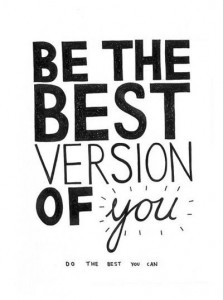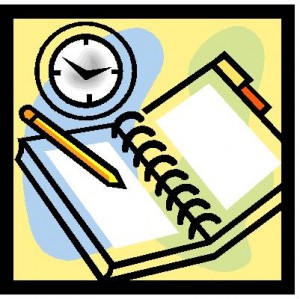Pharmacists: Give Your Greatest Gift in 2012
 As the year comes to a close, acknowledge yourself for the gift you’ve given your patients and colleagues this year-maybe your clinical intervention saved someone from a serious adverse effect, what you said brightened up someone’s day, or just being you was an inspiration to your co-worker/pharmacy staff even when you didn’t realize it.
As the year comes to a close, acknowledge yourself for the gift you’ve given your patients and colleagues this year-maybe your clinical intervention saved someone from a serious adverse effect, what you said brightened up someone’s day, or just being you was an inspiration to your co-worker/pharmacy staff even when you didn’t realize it.
As we enter into the new year, I challenge you to join me in taking this on for the next 48 days: decide every moment that you’ll give without bothering how the other person is responding or reciprocating (including in your job)…go to your extreme of giving. See yourself explode in intelligence & energy. Be your own source of inspiration to live & expand in every dimension of your life (-inspiration from Paramahamsa Nithyananda).
On the one hand, you can resolve to do just the minimum because you may decide that you don’t like your job or your boss. You may decide to give only how much you feel you are receiving. But you’ll end up stunting your own creativity, and the person who will suffer the most from it is you.
 You have the capacity to be an inspiring leader regardless of what role you play...an inspiration to others while giving your greatest gift. Your gift may not be the same as those around you (so drop all comparison!)…your gift is unique & can only be expressed by you.
You have the capacity to be an inspiring leader regardless of what role you play...an inspiration to others while giving your greatest gift. Your gift may not be the same as those around you (so drop all comparison!)…your gift is unique & can only be expressed by you.
Have a wonderful holiday—may those of you who choose to be inspired share bliss and joy with everyone around you. Email me & share your reflections with me in your 48-day journey. I’ll be thinking of you with love and inspiration as we enter the New Year!
#1 Reason for Communication Challenges in a Pharmacy
 The #1 communication method that causes misunderstandings in pharmacies is….
The #1 communication method that causes misunderstandings in pharmacies is….
You voted & the results are in from last month’s poll of pharmacy residency directors and pharmacy managers. The most popular answer was email. Face-to-face communication is currently in 2nd place. Do you agree?
What method of communication has caused you the most misunderstandings? If you haven’t voted yet, vote here & see the latest tally so your input is counted.
Tired of emails causing you frustrations with miscommunication? Here are 7 ways to prevent this issue from happening, including when & when not to use email.
Ready to Take Action & Turn Around Your Demotivated Pharmacy Staff?
 Last month, you learned the first 3 steps to improve productivity and increase your pharmacy staff’s motivation by taking a proactive approach to the situation. Now, read on for the second stage of the process, in which you prepare and present a plan to motivate your staff to the next level.
Last month, you learned the first 3 steps to improve productivity and increase your pharmacy staff’s motivation by taking a proactive approach to the situation. Now, read on for the second stage of the process, in which you prepare and present a plan to motivate your staff to the next level.
Step 4: Give each of your staff the opportunity of completing special projects within the pharmacy and give them creative freedom to introduce it into pharmacy. These can be patient-service related, clinical, or workflow-related. Allow your staff to have ways in which they may provide ongoing suggestions (ie, a suggestion box). Take time to discuss as a team the top ones to work on next, with the input of your vision. Give your staff the autonomy to be in charge of their project. Be amazed at your staff taking ownership and having pride in what they create. Give them a sense of purpose that motivates them to do their best every day.
Step 5: Make the most of your pharmacy technicians–give your techs ownership of an area that supports you. Ideas include taking P&T meeting minutes, organizing drug files (with you doing the aspects that require clinical knowledge), and answering all phone calls unless they escalate to requiring a pharmacist. For example, in many pharmacies, when a patient asks for a pharmacist, the phone immediately gets handed to a pharmacist. Instead, train your pharmacy support staff to ask what the person is calling about, so that if they can answer the question for them, they can do so. This helps you as the pharmacist or pharmacy manager make the best use of your time. You may train your support staff to say “so that I can give him/her [pharmacist] the heads up on what to help you with, would you let me know in a nutshell what you would like help with?”
Step 6: Inspect what you expect & acknowledge accomplishments. It’s cliché, but it rings true. Consistency of performance is impossible to maintain long-term when you don’t take the time to “inspect what you expect” & continue to inspire your staff.
Taking an active approach to turn around a demotivated staff reaps great rewards in productivity, employee satisfaction, and team cohesiveness. After implementing your unique plan, watch as your pharmacy staff grows on an individual and team level. As time goes on, be sure to not let the excitement of these new responsibilities wear off. Continue to encourage your pharmacists and techs to contribute in new, creative ways.
Motivating Your Pharmacy Staff Who Aren’t Performing to Their Potential
 Are you tired of figuring out a way to motivate your pharmacy staff who are underperforming, or who are visibly demotivated?
Are you tired of figuring out a way to motivate your pharmacy staff who are underperforming, or who are visibly demotivated?
What if you didn’t have to pull your hair out anymore, and could easily inspire your staff to exceed their potential?
You can improve productivity and increase your pharmacy staff’s motivation by taking a proactive approach to the situation. Create a more dynamic team with this two-tiered plan. First, set the tone for positive change and to decrease obstacles. Second, bring a plan to motivate your staff to the next level.
Here are some ideas you can implement now to achieve this:
Step 1: Share your vision for the pharmacy openly and frequently. Share your 1-mo, quaterly, annual, or 5-yr vision at staff meetings. Ask your staff what role they’d have an interest in playing with helping you reach your vision. In sharing your vision, share your specific goals as well. Instead of general goals such as “improve patient care” or “decrease wait time” give specific goals that are measurable, such as “decrease wait time by 20 min”.
Step 2: Provide clear channels of communication. Include regular time when your staff gets 1-on-1 time with you aside from performance reviews or team meetings. This time is best used to proactively encourage their growth as a pharmacist/tech, discuss challenges, and listen to the solutions they have to offer.
Clear communication when policy changes are made. When policy change are made, include your whole staff on those changes. This includes contract pharmacists who may not always attend your staff meetings. Provide them with an agenda that includes outcomes of those staff meetings and ask them to sign the agenda to acknowledge reading it.
Step 3: Set the stage for a more defined work flow by choosing structure over “wherever you’re needed”. Rather than letting your staff pharmacists & technicians choose where among the workflow to help out, have a structured workflow that lays out who is to do what when. Delegate responsibility that includes checklists (this can apply well to technicians). Some pharmacies allow pharmacists to float between screening & verifying/counseling without a set schedule.
The drawback to this is that some pharmacists may have a preference for one type of responsibility over another and engage primarily in that responsibility. This can create resentment among your staff, because those who may not be as assertive may end up feeling “stuck” doing responsibilities that the other staff doesn’t like to do.
Of course, instill the culture in your staff to help each other out when they’re backed up, but give your staff clear expectations of their roles.
Next month, we’ll introduce a plan for inspiring your pharmacists to want to perform at the next level.
7 Reference Questions You Wish You Asked Before Hiring a Pharmacist
Have you ever hired a pharmacist you got along with so well during the interview, only to wonder why you hadn’t seen it coming that your new hire would not work out as your employee?
Hindsight is always 20/20. But what if you could have as close to 20/20 before you hire someone? Take the emotional judgment out of your decision by using your intuition (NOTE: there is a distinction between intuition and emotion), assessing someone’s potential for future performance, and uncovering past behavior. This prevents you from just hiring someone you like, but who may not be a fit for the role. The decision factors mentioned above are the keys to a successful hire.
One method to uncover past behavior is asking the right reference questions. Not just generic standard reference questions, but insightful ones that help you make a sound decision. Don’t skip asking these insightful questions before you rush into hiring someone just because you’re short-handed.
Ask these 7 Reference Questions Before You Hire Your New Pharmacist:
- What did you find him/her to be naturally good at, or thrive on doing?
- Tell me about a time when a breakdown happened (ie, patient wasn’t getting served in the way you wanted; project wasn’t completed in a timely manner). What happened & what was the resolution?
- Under what kind of work environment do you think he/she would feel stifled in?
- Did he/she meet, exceed, or perform below your expectations?
- What advice do you have for managing him/her, and bringing out the best in him/her?
- What comes to mind first when you think of him/her–a starter, or a finisher?
- Would you have him/her work there again if the opportunity arose?
BONUS Reference Check Question:
If you were to hire XXX back and could create a position for XXX, what kind of a position would it be (ie, responsibilities)?
Comment below, or click the link to the right to share YOUR favorite reference questions. Contribute and you will receive a FREE Gift of” Top 20 Interview Questions to Ask“, so You Hire the Best Pharmacist NOT the Best Interviewer.
Pharmacist Retention Starts From Day One
 In the last article of this series, you recognized how important it is to set mutual expectations with your new hire, and to check in with them frequently, especially during the training period. This can save you from misunderstandings down the road, both in how you expect someone to perform actual functions and in the attitude or the pharmacy/clinic/hospital’s culture you’d like them to imbibe. It will ultimately lead to retention of happy employees. Studies show that one main reason why pharmacists leave their positions is because of management. Setting the tone for a strong relationship with your staff from the beginning is key to preventing that. Read on for more tips on setting expectations, how frequently to meet with your new hire, and questions to ask your new hire during the training period to set the stage for their retention.
In the last article of this series, you recognized how important it is to set mutual expectations with your new hire, and to check in with them frequently, especially during the training period. This can save you from misunderstandings down the road, both in how you expect someone to perform actual functions and in the attitude or the pharmacy/clinic/hospital’s culture you’d like them to imbibe. It will ultimately lead to retention of happy employees. Studies show that one main reason why pharmacists leave their positions is because of management. Setting the tone for a strong relationship with your staff from the beginning is key to preventing that. Read on for more tips on setting expectations, how frequently to meet with your new hire, and questions to ask your new hire during the training period to set the stage for their retention.
How frequently to meet with your new pharmacist hire:
Read more
How to Train for Retention so Pharmacists Don’t Leave
The potential government shut down last week made many people affected sweat. With steep federal budget cuts, the issue of having money to hire becomes one to be concerned about. Even if you are not affected by federal funding, budgets is the name of the game in this economy. Having to hire someone new can be costly, so retention is always the first place to look for a solution. Retaining good pharmacists starts from the very beginning-hiring and training.
One of the most common phrases I hear from pharmacy directors/managers is “I don’t want to spend a long time training a new employee.” As a result, training becomes something many pharmacy managers fly through quickly to get a new pharmacist up to speed. Yet it is the most crucial element to your new employee’s long-term success and ultimately the retention of your new hire.
Here are a few tips to implement when you train someone new:
- Set expectations – between both you and your new hire. This means not only you setting expectations for them, but them expressing their expectations and how they prefer to be managed. Determine together what the definition of success in their role would look like.
- Discuss the pharmacy’s values, vision, and mission. This is a step many pharmacy directors skip. But it is an important step for key reasons. One of the main reasons why an employer feels compelled to stay at a job is if values, vision, and mission are in alignment. Things may not be perfect, but an employee is more likely to put up with things they are dissatisfied with if they feel they are aligned with your pharmacy’s values & are empowered by your vision/mission.
 Conduct a personality assessment such as the Insights Model, so you recognize not only how they may tend to relate with others, but also their natural strengths. For example, an introvert may not openly share their successes with you, but they may be just as outstanding as an extrovert counterpart. Insights into how your pharmacy staff thinks, acts, and works can give you an edge to managing them smoothly.
Conduct a personality assessment such as the Insights Model, so you recognize not only how they may tend to relate with others, but also their natural strengths. For example, an introvert may not openly share their successes with you, but they may be just as outstanding as an extrovert counterpart. Insights into how your pharmacy staff thinks, acts, and works can give you an edge to managing them smoothly.- Find a way to communicate regularly with your new hire. Set expectations for how they can maintain channels of communication, including as a team (ie, staff meetings) and individually. Include when, how frequently, what can be brought up. For example, you may set the stage early on that when someone brings a problem, they will always come with three potential solutions. This way you don’t get constant complainers.

In an upcoming blog article, you will learn some of the best questions to ask a new hire to see how they are doing during the training period….and how to use that valuable information to retain your pharmacists.
If you have temporary coverage needs between finding out when someone is leaving and training a new hire, explore your options for IHS/tribal-experienced pharmacists to cover in the interim. Don’t waste your money on inconsistent levels of pharmacists who take more than necessary effort to train and manage.
Gossiping & Backstabbing in the Pharmacy
Having problems with gossiping or backstabbing happening in your pharmacy, or someone on your pharmacy staff always arriving late and others getting upset about that person never being called out on it?
Let it be a thing of the past. Create a “code of honor” specifically for the pharmacy to prevent this.
Q: This sounds stuffy. Why go through the trouble?
A: This is something that isn’t routinely talked about in pharmacies, but is in essence the things (said or unsaid) that a team works according to. If there is not an established code of honor for the team, an individual usually goes by his/her own code of honor to make decisions. This is where you can start having problems among your staff.
Q: A Code of Honor-What is it?
A: As defined by Blair Singer’s “The ABC’s of Building a Business Team That Wins” (NOTE: this also applies to pharmacies & hospitals), “a Code of Honor is the physical manifestation of the team’s values, extended into behavior.
Not only is it important to have values, but also knowing how to put behavior into practice that reflect those values. Establishing and agreeing to a code of honor helps everyone achieve their best performance, enjoy their work environment, and see the best results.
Q: Why is it necessary?
A: Blair explains why a Code of Honor is necessary: “By experience and default we all formulate our own sets of guidelines, rules and assumptions. That’s natural. But when we start coming together with other people, organizations and cultures, we sometimes have a tough time figuring out why “those guys” don’t understand, or how they could so blatantly turn their back on our feelings, our way of doing things and our rules. In most respects, “those guys” feel the same way about us. Why? Because we assume that certain basic rules are the same. Bad assumption.”.
Having a strong mission & an established culture is only part of the whole picture. Having a strong code of honor within the pharmacy makes the team stronger and reinforces what the pharmacy stands for.
Mission comes first, the needs of the team second, and the needs of the individual third. Develop the code of honor together as a pharmacy.
Some code of honor examples: “When a team member needs help, we will do whatever it takes to help that team member complete the task.” “Celebrate all wins.” “When someone breaches the code…”call it”!” “Keep agreements.” “Be on time.”
Tips for Implementing Your Pharmacy’s Code of Honor
Discuss the code and make sure everyone is on the same page. For example, there may be different interpretations of what being on time means. Some people view being on time as arriving through the door on time. Others view it as ready at a workstation with a pen to start doing what needs to be done. This is to be discussed so that the team is on the same page and there is no unspoken resentment about different interpretations about the code.
In the absence of rules or “code”, people make up their own rules. One of the biggest challenges about the workplace is that well-meaning people are playing by different sets of rules.
If you want to learn more about how to implement the code of honor in your pharmacy, read Blair Singer’s “Rich Dad’s Advisors®: The ABC’s of Building a Business Team That Wins: The Invisible Code of Honor That Takes Ordinary People and Turns Them Into a Championship Team
Pharmacy Managers: Sometimes You Have to Say, “You’re Fired!”
Take the Poll: How long after hiring a new pharmacist do you know whether or not he or she will work out for the long run?
Q: What is the best way to address and remove a bad hire?

Determine whether to say goodbye. Determine if you’ve made a bad hire, or whether underperformance may be due to other factors such as your lack of strategic direction or leadership, or inability to foster your hire to perform to his/her highest capacity. If you determine your hiring mistake is irreparable, remove your bad pharmacist hire quickly, because he/she can drain the energy and morale of your good hires (not to mention taking up a lot of your management time).
The firing. Have compassion and respect for your bad hire when you are doing your firing. Come from the perspective of discussing how it is no longer a fit for both parties, rather than making your discussion focused on the areas in which they are underperforming. Usually when you are at the point of having the “letting go” conversation, you have already made attempts at making things work. One example of discussing it from the place of it being no longer a mutual fit could be saying that the vision/ strategic direction or values you have for the pharmacy isn’t in alignment with the way he/she is currently performing.
 Anticipate that you may receive different reactions. Some pharmacists react by being defensive. Others may be surprised. Some may even feel a sense of relief because they have felt for some time that it’s not a good fit and you’ve finally validated it for them. Be prepared for the range of human emotion.
Anticipate that you may receive different reactions. Some pharmacists react by being defensive. Others may be surprised. Some may even feel a sense of relief because they have felt for some time that it’s not a good fit and you’ve finally validated it for them. Be prepared for the range of human emotion.
What to do about the reaction. Be present — give them your attention. Acknowledge their reaction. Allow the person to share their perspective and acknowledge them for sharing. Then come back to how it is not a fit and that you feel they would thrive in a different environment. Wish them luck in their next endeavor. It doesn’t have to be a long discussion, but have compassion and respect for the pharmacist you are firing.
Ready to hire right the first time so you don’t have to fire someone? Read the 4 secret ways to attract good pharmacists.
Emotional Hiring Baggage
Take the Poll: Do you think it’s better to strengthen your strengths, or strengthen your weaknesses?
*Scroll down to the bottom to see what experts say about strengthening your strengths vs. strengthening your weaknesses. Find out why it matters to the success of your pharmacy after you hire.*
Now…read about a common mistake that pharmacy directors make when hiring a pharmacist.
Hiring based on emotions or your rapport with someone is a common mistake hiring managers make. You go through your screening process, but end up hiring someone you like rather than the most suitable person for the role. It is important to like whom you work with, but taking emotion out of the picture will allow you to make sound final decisions. Go through a set system that takes emotion out of the decision. Emotion can be triggered by your need to hire someone right away, or your hoping that a candidate you like will work out because you like him/her, and you hire them despite red flags showing up.
Try to involve other people and your pharmacy staff in the decision-making process at some point. They may be able to identify your blind spots preventing you from seeing the whole picture of the candidate. Use a set system and include your intuition to help you make a final decision.
One overlooked mistake is hiring someone who <span id=”more-1598″></span>is similar to you in the way they process the world. The problem is that you may actually be looking for them to fulfill a role that does not require the similar type of excellent that your role does.
Many times, the way someone processes the world is tied to the type of role they are well suited in. For example, someone who is introverted, structured & organized, systematic, analytical, detail-oriented will be more likely to be in the role of a bookkeeper than an entertainer (who may be more extraverted, sociable, and right-brained).
Pharmacists typically have a strong analytical and detail-oriented side to them, which makes them more prone to being accurate and perhaps enjoy reading journal articles. But they may not like counseling patients because they are an introvert. Even though they may appear sociable, their true preference is being an introvert. Others may thrive on counseling patients.
Each person has traits that allow them to be strong in other areas, whether they are traits that allow them to be a strong leader, the ability to make others feel comfortable and welcoming, or being a supportive type of person who doesn’t mind being conforming and likes to avoid confrontation.
Although some pharmacists can accomplish the analytical side of things, they would thrive even more if placed in a role (or add-on to their current role) that allows their creativity to come through, such as creating ways to improve patient satisfaction. Or engaging in a role that requires thinking outside the box. Maybe they would be better at re-designing pharmacy workflow to its optimal efficiency rather than analyzing journal articles, reviewing patient records, or making sure everything is entered in the computer exactly as requested.
When you hire pharmacists without conducting behavioral assessments, chances are that you are not utilizing their best talent, because you haven’t taken the time to truly understand their strengths and how they process the world.
Identify your team’s strengths and strengthen their strengths. It is more effective than identifying weaknesses and improving on their weaknesses. That is a concept explored in “Strengths Finder” by Tom Rath. The Strengths Finder assessment is something you can incorporate in your hiring process to understand someone’s true strengths, and identify ways to magnify those strengths.
Other assessment tools can help with determining work style preferences. Stay tuned–in a future article, you will find out how to move someone a seemingly low achiever to a high level of performance.
The time to start assessing and understanding your pharmacy staff’s strengths is during the hiring process, even before they start.